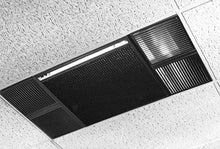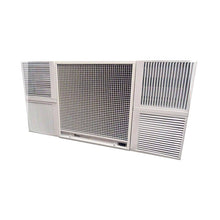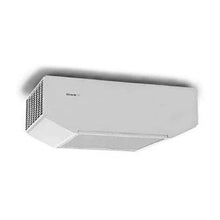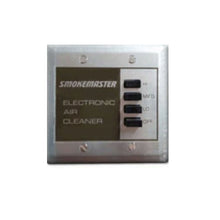Navigating the Hushed World of Silent Smoke Eaters: A Guide for Premium Lounges
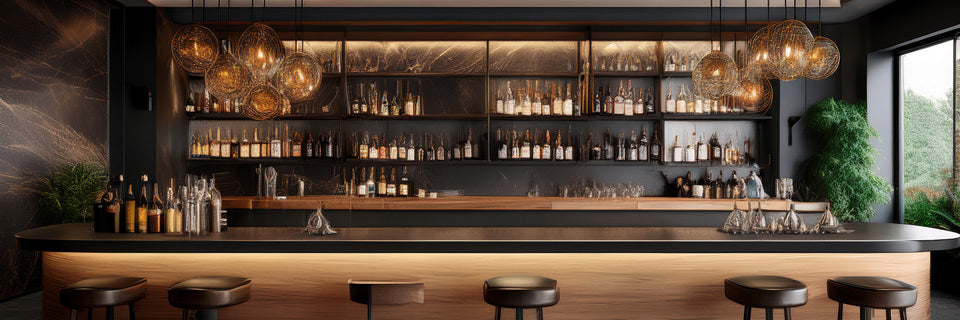
Navigating the Hushed World of Silent Smoke Eaters: A Guide for Premium Lounges
As the owner of a high-end cigar lounge, a sophisticated speakeasy, or a private members' club, you understand that every detail contributes to the a la carte experience you offer. The plush seating, the curated beverage list, the ambient lighting—each element is meticulously chosen to create an atmosphere of luxury and comfort. But what about the air itself? The presence of cigar smoke or other airborne irritants, while sometimes a part of the ambiance, can detract from the premium experience, especially for those sensitive to smoke. The challenge is clear: how do you maintain impeccable air quality without introducing the distracting drone of a loud fan?
This is where the quest for a "silent smoke eater" begins. At Commercial Air Purifiers, LLC, we've spent years exploring and developing solutions that address this exact pain point. We've seen firsthand that for establishments where conversation and quiet reflection are paramount, the noise level of an air purification system is just as critical as its filtration performance. In this comprehensive guide, we'll delve into the science and technology behind low-noise commercial air purifiers, helping you find a discreet air purification solution that not only cleans the air but does so without disrupting the tranquil environment your patrons cherish.
The Problem with Loud Air Filtration: More Than Just a Nuisance
The issue with many traditional commercial air purification systems isn't just their size or cost; it's the noise they generate. An air purifier that sounds like a jet engine, even at its lowest setting, fundamentally works against the atmosphere you're trying to create. A study published in the Journal of Environmental Psychology highlighted the negative impact of environmental noise on customer satisfaction and dwell time in commercial spaces. When patrons have to raise their voices to be heard, or when a persistent hum becomes the background to their evening, the perceived value of the space diminishes.
For establishments like cigar lounges, where the very act of smoking introduces a significant amount of particulate matter and gaseous pollutants, a robust air filtration system is non-negotiable. According to the U.S. Environmental Protection Agency, secondhand smoke contains thousands of chemicals, including many known carcinogens. While patrons in a cigar lounge are there by choice, ensuring the air remains as clean as possible is a matter of both comfort and a responsible business practice. The paradox is that the very solution to this problem—the air purifier—can become a problem in itself if it is not engineered for quiet operation. Finding a powerful, yet quiet commercial air purifier is not just a luxury; it's a necessity for maintaining a high-end experience and demonstrating a commitment to customer well-being.
The Science of Silence: How Quiet Air Purifiers Work
The secret to a silent smoke eater lies in a combination of engineering and design principles. It's not about sacrificing power for quietness; it's about a smarter approach to air movement and filtration. The core of any air purifier is its fan, which draws air into the unit to be filtered. The noise level of this fan is a direct result of its size, speed, and design. A small fan spinning at a very high speed will often generate more noise than a larger fan moving the same volume of air at a slower, more efficient speed. At Commercial Air Purifiers, LLC, our research and development efforts have focused on optimizing fan blade geometry and motor efficiency to minimize acoustic output without compromising on air turnover rates.
Beyond the fan, the overall design of the unit plays a critical role in sound dampening. Insulating the interior of the casing with sound-absorbing materials and creating smooth, unobstructed air pathways can significantly reduce the aural footprint. Furthermore, advanced models may utilize a multi-stage filtration process that allows for a larger, more efficient filter, reducing the need for the fan to work harder. For a cigar lounge, a comprehensive air filtration system will typically include a pre-filter to catch large particles, a robust activated carbon filter to absorb odors and volatile organic compounds (VOCs), and a HEPA or equivalent filter to capture microscopic particulate matter from the smoke. The strategic placement of these filters and the careful design of the internal airflow path are essential for a truly low noise smoke eater.
A prime example of this engineering in practice is a system that employs an ECM (Electronically Commutated Motor). Unlike traditional AC motors, ECMs operate more efficiently and can be precisely controlled, allowing the fan to maintain a consistent speed with less effort and, consequently, less noise. This technology is a cornerstone of many high-performance, silent air filtration systems designed for commercial use. Our experience in testing various systems has shown that ECM-equipped models consistently outperform their AC counterparts in both efficiency and quietness, providing a premium experience that aligns with the high standards of a luxury establishment.
Case Studies in Discreet Air Purification
To illustrate the impact of a silent air purifier, consider the transformation of a high-end whiskey bar. The establishment prided itself on its intimate atmosphere, but patrons would occasionally complain about the lingering smell of cigar smoke from a designated smoking area, or the general "stale air" sensation on a busy night. The owners were hesitant to install a powerful system, fearing the noise would disrupt the quiet ambiance they had cultivated. After consultation, a silent air purification system with a custom-engineered airflow path and sound-dampening technology was discreetly integrated into the ceiling. The result was a dramatic improvement in air quality, with no perceptible increase in the ambient sound level. Customer feedback immediately shifted, with patrons noting how "fresh" and "clean" the air felt, enhancing their overall experience without them even realizing the source of the improvement.
In another instance, a private members' club with an exclusive cigar room faced a similar challenge. Their existing system was effective but noticeably loud, especially during peak hours. The club's management wanted to upgrade to a system that was both powerful and virtually silent. We were able to recommend a low-noise smoke eater that utilized a multi-stage filtration system and a large, slow-moving fan. We also advised on the optimal placement of the units to ensure maximum air circulation without creating drafts or a centralized humming sound. The outcome was a seamless integration that solved the air quality problem and allowed the club to market their space not just as a smoking lounge, but as a space with "premium, breathable air." This real-world application demonstrates that a truly silent solution is an asset that can be highlighted to attract and retain discerning clientele.
Selecting the Right System for Your Venue
Choosing a low-noise commercial air purifier requires careful consideration of several factors beyond just the noise level. You need a system that is powerful enough to handle the air volume of your space and the specific contaminants present.
First, consider the Clean Air Delivery Rate (CADR). This metric, developed by the Association of Home Appliance Manufacturers (AHAM), measures how well an air purifier removes smoke, dust, and pollen from the air. For a cigar lounge, a high smoke CADR is essential. However, it's crucial to look for systems that achieve this high CADR at a low decibel level. The best units will provide performance curves showing how the CADR changes with noise output, allowing you to find the optimal balance for your needs.
Second, evaluate the filtration technology. As mentioned, a combination of activated carbon and HEPA filters is highly effective for smoke-filled environments. The carbon filter is key for removing the odors and gases, while the HEPA filter handles the fine particulate matter. Look for systems with a substantial amount of activated carbon, as this is a direct indicator of its capacity to handle heavy smoke and odor loads. A study from the National Institutes of Health demonstrated the efficacy of activated carbon filters in reducing indoor air pollutants, a finding that we at Commercial Air Purifiers, LLC have seen proven in countless applications.
Finally, consider the maintenance requirements. A discreet air purification system should be as low-maintenance as possible. This includes easy filter replacement and durable components. The last thing a busy lounge owner needs is a complex maintenance schedule that takes away from their primary business operations. When we provide recommendations, we always prioritize systems that are robust and designed for the demanding environment of a commercial establishment.
Conclusion: Elevating Your Atmosphere with Invisible Cleanliness
The pursuit of a silent smoke eater is more than a technical challenge; it's a commitment to providing an unparalleled experience for your patrons. A loud air purifier can undo the careful curation of a premium space, while a quiet, effective system enhances it. As we've seen, the solution lies in sophisticated engineering—from advanced motors and sound-dampening materials to multi-stage filtration and strategic placement.
At Commercial Air Purifiers, LLC, we are confident that by prioritizing both performance and quiet operation, you can find a solution that not only meets but exceeds your air quality goals. A discreet air purification system is an investment in your brand, demonstrating a genuine concern for the comfort and well-being of your customers. It's the kind of subtle luxury that defines a truly premium establishment—where the air is clean, the atmosphere is serene, and the conversation is the only thing you hear. We encourage you to explore these advanced solutions and take the next step toward an atmosphere of impeccable, invisible cleanliness.
Author: Commercial Air Purifiers, LLC
Date of Publication: September 7, 2025
Frequently Asked Questions
How often do the filters need to be changed in a commercial air purifier?
The frequency of filter changes depends on the specific model and the level of usage and air pollution in the space. In a heavy-smoke environment like a cigar lounge, filters may need to be changed more frequently than in a general office setting. Many advanced systems have indicators to let you know when a filter is nearing the end of its life, but we generally recommend a quarterly or bi-annual check-up for commercial installations to ensure peak performance.
Can a silent air purifier really handle heavy smoke?
Yes. The key is not the volume of the sound, but the efficiency of the system. By using larger fans that move air at a lower velocity, and by employing robust, high-capacity filtration media, a well-designed quiet commercial air purifier can be just as, if not more, effective than a loud one. The focus is on a high Clean Air Delivery Rate (CADR) for smoke, achieved through superior design and engineering rather than brute force.
Is there a difference between a "smoke eater" and an air purifier?
The terms are often used interchangeably, but "smoke eater" typically refers to an air purification system specifically designed to handle a high volume of smoke and associated odors. These systems often feature a more substantial activated carbon filter than a standard air purifier, which is essential for capturing the gaseous pollutants and VOCs in smoke. A quality air purifier can certainly handle smoke, but a dedicated "smoke eater" is engineered for the unique challenges of a smoke-filled environment.

